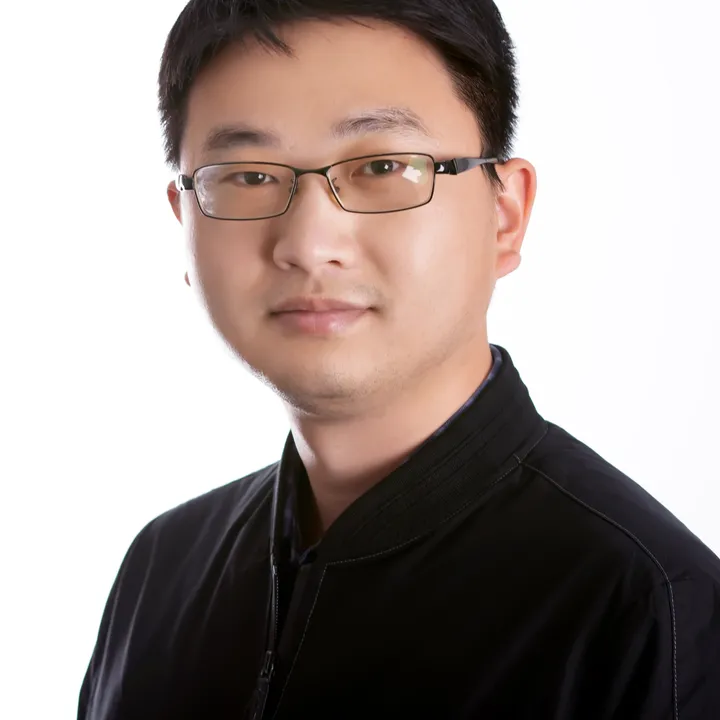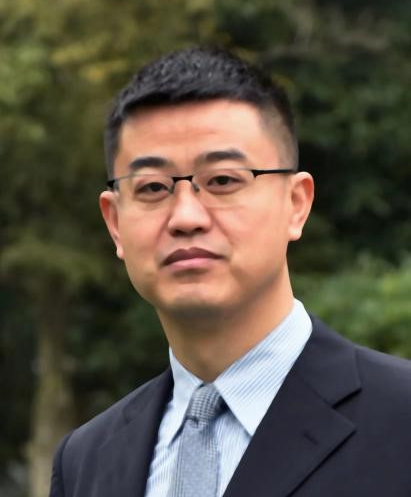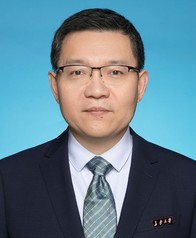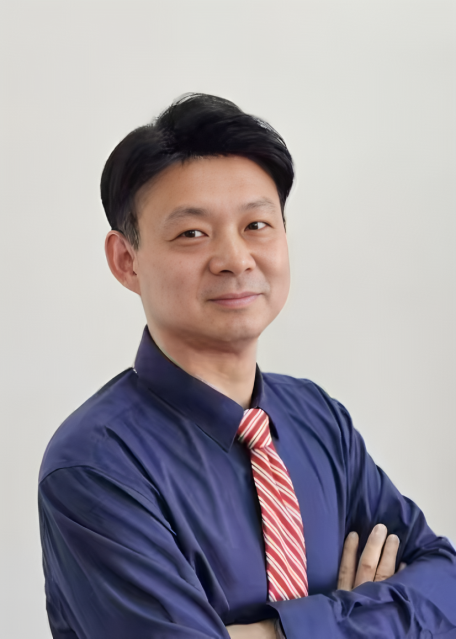
| Professor Junhui Zhao IET Fellow Beijing Jiaotong University, China Biography: Junhui Zhao received the M.S. and Ph.D. degrees from Southeast University, Nanjing, China, in 1998 and 2004, respectively. From 1998 to 1999, he worked with Nanjing Institute of Engineers at ZTE Corporation. He is currently a Professor at the School of Electronics and Information Engineering in Beijing Jiaotong University. His current research interests include wireless communication, internet of things, and information processing in transportation. Speech Title: BEV perception in autonomous driving Abstract: Environmental perception is the core technology for achieving autonomous driving, enhancing both driving safety and efficiency. This presentation first introduces single-vehicle perception techniques, including sensor fusion and BEV perception, which serve as the foundation for collaborative perception. Second, it explores multi-vehicle collaborative perception, where information sharing between vehicles expands perception range and improves accuracy. Finally, it investigates collaborative perception under real-world communication constraints, analyzing the impact of factors like communication loss on system performance and proposing optimization strategies. This research provides theoretical support and technical direction for autonomous driving perception in complex traffic environments. |
| Professor Yisheng An Dean of the School of Information Engineering Chang'an University, China Biography: Yisheng An received the M.S. and Ph.D. degrees in systems engineering from Xi’an Jiaotong University, Xi’an, China, in 2001 and 2007, respectively. He is an IEEE Member, and a Professor with the Department of Computer Science and Engineering, School of Information Engineering, Chang’an University, Xi’an. His research interests include autonomous driving system testing, traffic flow modeling and simulation, and digital twin system. Focusing on aspects like “virtual-real integrated testing of autonomous driving in closed venues” and “virtual testing of autonomous driving based on digital twins”, he has led and completed over 20 projects, including key projects under the National Key R & D Program, general projects of the National Natural Science Foundation of China, and other projects funded by large state-owned enterprises. Speech Title: Intelligent and Connected Transportation System (ICTS) Abstract: With the rapid advancement of artificial intelligence, communication technologies, and autonomous driving, intelligent connected transportation systems (ICTS) are gradually reshaping human travel modes and urban traffic patterns. Centered on intelligent vehicles, ICTS integrate perception, communication, big data, and autonomous control technologies to achieve efficient interconnection and collaborative management among vehicles, infrastructure, users, and cloud platforms. This transformation is driving transportation toward greater intelligence, sustainability, and safety. This report begins by tracing the evolution of modern transportation and explores global trends in intelligent connected vehicle development. It focuses on key technological innovations by leading enterprises such as Tesla, Google, and Huawei in areas like autonomous driving, environmental sensing, and visual navigation. The presentation further outlines the system architecture of ICTS and delves into critical technologies including traffic scenario construction, multimodal communication, high-precision positioning, vehicle-infrastructure coordination, cloud-based integration, and cybersecurity. In addition, the report compares policy strategies, technological roadmaps, and pilot applications across major regions such as China, the United States, Europe, and Japan. Special attention is given to China’s efforts in developing a “vehicle-road-cloud integrated” infrastructure, along with progress in standardization and testing. The discussion concludes with an outlook on the future direction of smart transportation and the challenges it may face. |
| Professor Zhiwei Ye Dean of the School of Computer Science Hubei University of Technology, China Biography: Ye Zhiwei, male, professor, is the dean of the School of Computer Science at Hubei University of Technology and the executive dean of the Big Data and Artificial Intelligence Industry College. He is also the director of the Hubei Provincial Key Laboratory of Green and Intelligent Computing Power Network, the leader of the Hubei Provincial Excellent Middle-aged and Young Scientific and Technological Innovation Team, the deputy director of the Data Science Committee of the National Higher Education Computer Basic Education Research Association, director of Hubei Computer Society, expert of Engineering Education Accreditation of Ministry of Education and the vice chairman of the Xining Smart Cloud Digital Economy Research Institute. He has won two second prizes of the Hubei Provincial Science and Technology Progress Award, and in 2021, he won the first prize of the China Innovation Challenge Competition in the High-end Equipment Manufacturing Special Session in Hubei and Wuhan organized by the Torch High-tech Industry Development Center of the Ministry of Science and Technology. He has guided students to win five special and first prizes in the National Challenge Cup Competition. He has supervised over 40 master's students, obtained 23 authorized invention patents, and published 115 research papers in important domestic and international academic journals and conferences, among which 75 papers have been indexed by SCI or EI, with a total citation count of over 2,000 times. He has led and participated in more than 10 projects including the National Natural Science Foundation of China and the Hubei Provincial Key Research and Development Program. Currently, his main research directions include machine learning, image processing, and evolutionary computation. Speech Title: Feature selection based on Hybrid breeding optimization algorithm Abstract: With the advancement of data collection technology, more and more observational data can be obtained. However, the increase in data dimensions leads to the inclusion of a large number of irrelevant or weakly correlated features in the data set. These features not only increase the computational time of subsequent machine learning models but also may reduce the accuracy of classification. Therefore, feature selection is a very important step. The problem of feature selection is computationally very complex, and it is difficult to obtain the global optimal solution through traversal or branch and bound methods for high-dimensional feature selection. In recent years, some random optimization algorithms have performed well in the feature selection problem. However, there are still problems such as being prone to getting stuck in local optimal solutions and long computation time. The hybrid breeding optimization algorithm is a new type of intelligent optimization algorithm proposed by the reporting team under the inspiration of the three-line hybrid rice breeding mechanism and heterosis. This algorithm has the advantages of strong optimization ability and fast convergence speed. This report attempts to explore the application of the hybrid breeding optimization algorithm and various improved algorithms in the optimization solution of feature selection, providing new attempts for the solution of high-dimensional feature selection problems. |
 | Professor Chenguang Yang IEEE Fellow University of Liverpool, UK Biography: Professor Chenguang Yang holds the Chair in Robotics in the Department of Computer Science at the University of Liverpool, UK, where he leads the Robotics and Autonomous Systems Group. He is a member of European Academy of Sciences and Arts, and he is also recognized as a Fellow by several prestigious institutions, including the Institute of Electrical and Electronics Engineers (IEEE), Institute of Engineering and Technology (IET), Institution of Mechanical Engineers (IMechE), Asia-Pacific AI Association (AAIA), and British Computer Society (BCS). Professor Yang serves as the corresponding Co-Chair of the IEEE Technical Committee on Collaborative Automation for Flexible Manufacturing (CAFM). He previously served as President of the Chinese Automation and Computing Society in the UK (CACSUK) and has organized several conferences as the general chair, including the 25th IEEE International Conference on Industrial Technology (ICIT) and the 27th International Conference on Automation and Computing (ICAC). As the lead author, he received the prestigious IEEE Transactions on Robotics Best Paper Award in 2012 and the IEEE Transactions on Neural Networks and Learning Systems Outstanding Paper Award in 2022. Speech Title: Robot Control, Learning, Perception and Teleoperation Abstract: Learning from Demonstration (LfD), or imitation learning, allows robots to acquire and generalize task skills through human demonstrations, creating a seamless integration of artificial intelligence and robotics. Most LfD approaches often overlook the importance of demonstrated forces and rely on manually configured impedance parameters. In response, my team has developed a series of biomimetic impedance and force controllers inspired by neuroscientific findings on motor control mechanisms in humans, enabling robots to imitate compliant manipulation skills. Our models reduce the dimensionality of skill representation, facilitating online optimization and reducing system sensitivity to parameter changes. To improve robot skill learning through enhanced perceptual capabilities, we designed anthropomorphic visual tactile sensors that assess contact force, surface texture, and shape, closely resembling the softness and wear resistance of human fingers for superior manipulation. The control and learning technologies we have developed have been particularly effective in robot teleoperation and human-robot collaboration, with shared control-based semi-autonomous methods that effectively integrate human intent with robotic autonomy, thereby achieving greater efficiency and usability. |
INVITING AND UPDATING*


